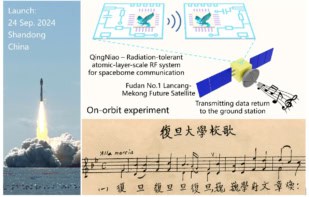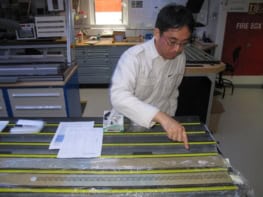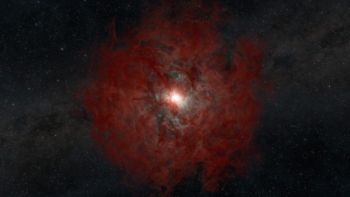In the Shadow of the Moon
Director David Sington
100 minutes
In cinemas in the UK from Friday 2 November

“This is not a film about science and technology, this is a film about people and emotions.” So claims David Sington, director of the documentary In the Shadow of the Moon, which charts NASA’s Apollo programme. Sington freely admits that this is not a new idea, with many other films and television programmes having covered the subject in the years since man first set foot on the Moon. What makes this new film different is that its narrative is solely the prerogative of those men who have walked on (or in a couple of cases orbited) our nearest satellite.
The film, which uses previously unseen footage cherry-picked from NASA’a vast archive of material from the missions interwoven with talking heads of the astronauts involved, is both visual striking and emotionally engaging. The director had been warned to “never work with children, animals, or astronauts”, with the concern that previous attempts to coax these men to convey the full impact of what they achieved having failed to live up to expectations. But perhaps because those concerned are now in their twilight years, their testimonials are as open and insightful as one could wish for.
Far from anonymous “action men in spacesuits”, the personalities of the individuals concerned shine through, and their reminiscences are at times disarmingly down to earth. Michael Collins of Apollo 11, who was dubbed “the loneliest man in the universe” as he orbited above Buzz Aldrin and Neil Armstrong as they became the first people to set foot on the Moon, reveals how he actually relished this unique position, with his view of billions of people on Earth, two people on the Moon, and then just he himself at the edge of the rest of the universe and “God knows what”.
The film includes contributions from many of the surviving 24 astronauts who visited the Moon, with one glaring omission: Neil Armstrong. Notoriously reclusive, Sington spent a long time pursuing Armstrong to try and persuade him to appear in the film, fearing that it would be obviously incomplete without him. It isn’t. Through the anecdotes of the other astronauts and the archive footage, Armstrong is still a presence, but one that remains forever in 1969 — an idealized foil to his obviously aging colleagues and our now perhaps jaded view of space exploration.
But the question we all want answered is whether going to the Moon changed these men, and what insights it has afforded them. Many of them say that the myriad of seemingly important issues that consume our everyday lives were somewhat diminished after their missions. Alan Bean of Apollo 12 claims that since he return to Earth he has never once complained about the weather — being so far from home that you can cover the whole of our planet with your thumb is clearly sobering.
There is a general feeling that going to the Moon, if not a religious experience, was for many a least a spiritual one. The word “fragile” crops up often when the astronauts describe their privileged view of the Earth from space. And this is the one area where they appear unable to rise above the problems facing humankind. Climate change and the damage we are doing to our planet appear in sharp relief to those who have seen it from a distance. With the benefit of hindsight, it is telling that one of the legacies of going to another, less-hospitable, world should be that we value our own “Garden of Eden”, as Bean puts it, even more.



